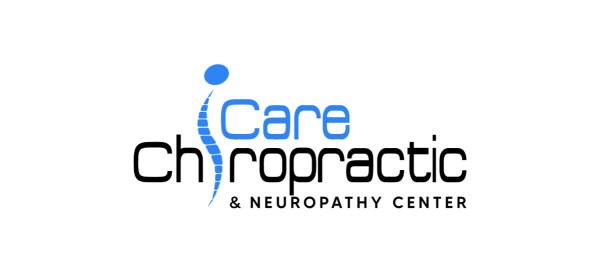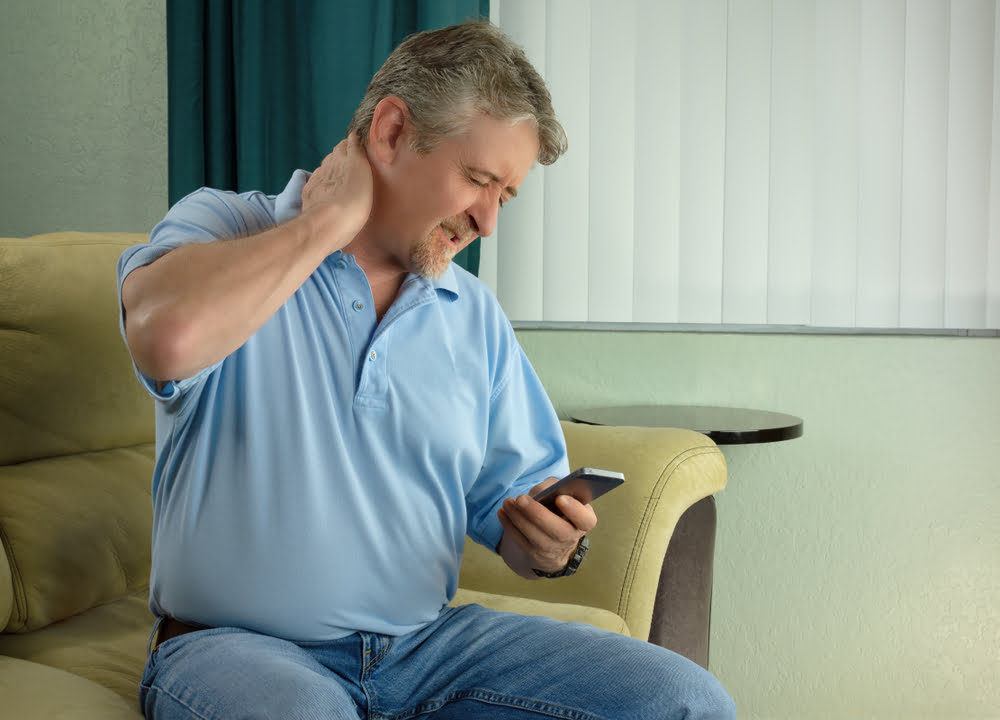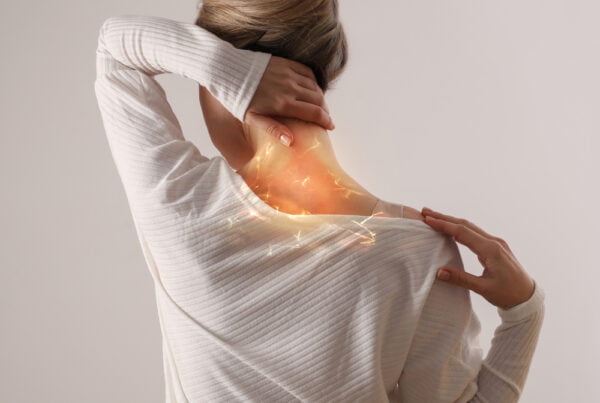Postural stress occurs not only because of your anatomy but also because of the decisions you make each day. Believe it or not, many spend 2 hours or more daily on their smartphones or tablets. That adds up to hundreds if not thousands, of hours each year! The position we hold our heads in while using these devices is referred to as “tech neck.” And over the past few years, the pain associated with these positions has been growing by leaps and bounds.
It’s estimated that tilting your head forward, even just 15 degrees, can increase the weight of your head on your neck by over 3X. Tilting your head forward 60 degrees can reduce the stress and strain on your neck. Over time, this can result in pain, stiffness, dysfunction, headaches, and more. The excellent news about postural stress and tech neck is that a few simple changes to your routine can help you reduce your risk of experiencing pain.
Tech neck is the term used to describe the flexed head and neck position that occurs when looking down at your smartphone. Even 15 degrees of forward bending (flexion) can increase the stress of your head on your neck by 3X. Look up taking breaks every 15 minutes and looking up for your phone or tablet can help your body reset and give your muscles a chance to relax.
Reducing the symptoms of tech neck is more than merely changing the angle of how you look at your phone. By properly evaluating your ergonomics, we (iCare Chiropractic) can make personalized recommendations to help your body maintain a more balanced posture. By reducing the stress on your neck, you can look forward to many years of continuing to enjoy your smart devices!
Science Source
Section
Effects of Lower Trapezius Strengthening Exercises on Pain, Dysfunction, Posture Alignment, Muscle Thickness, and Contraction Rate in Patients with Neck Pain; Randomized Controlled Trial. Medical Science Monitor 2020
Back Health and Posture. Cleveland Clinic. 2020
“Tech Neck” Taking a Toll on Posture. Columbia Spine. 2018
Upright Posture Improves Affect and Fatigue in People with Depressive Symptoms. Journal of Behaviour Therapy and Experimental Psychiatry in 2017
Breaking up workplace sitting time with intermittent standing bouts improves fatigue and musculoskeletal discomfort in overweight/obese office workers. Occupational & Environmental Medicine. 2014





